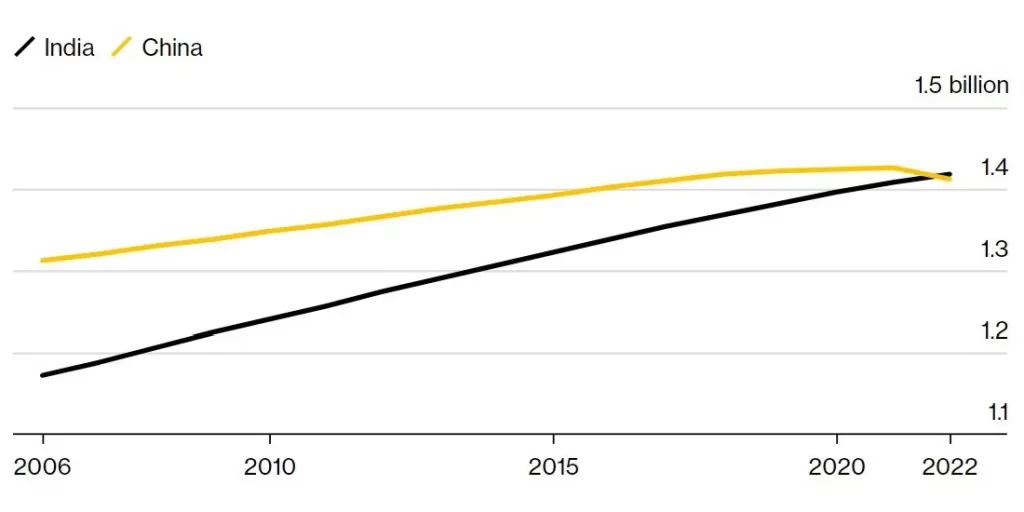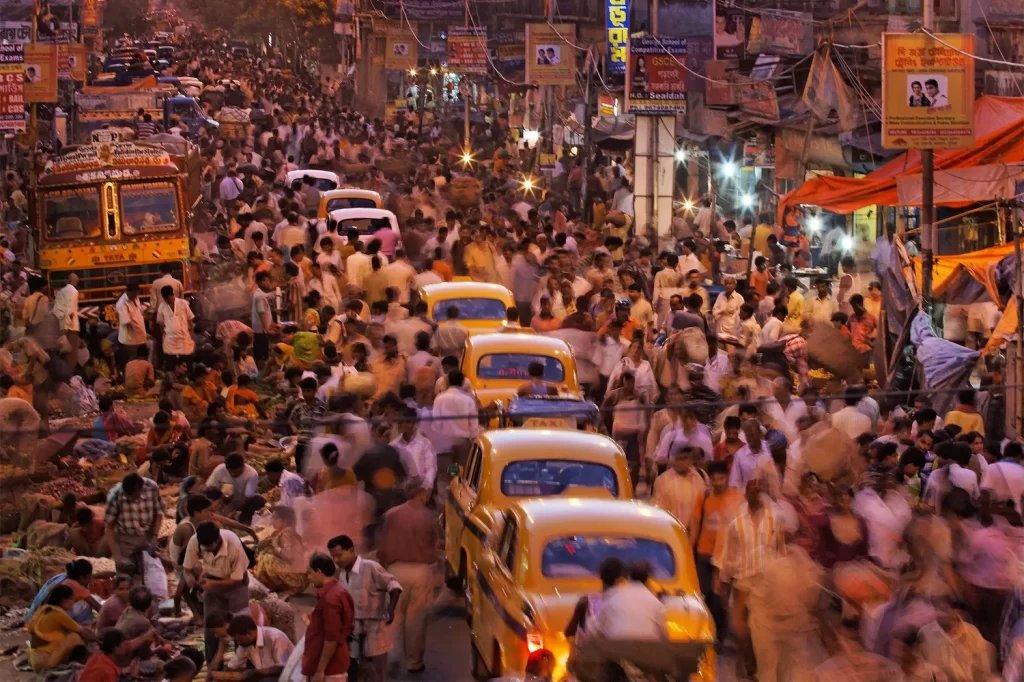India Population Overtakes China Population

According to the World Population Review, India has overtaken China to become the world’s most populous country. The population gap between the two countries is expected to increase further in the coming years.
For the first time in many years, China has lost the first place in the list of countries with the most population. According to the World Population Review (WPR), India’s population reached 1.417 billion people by the end of 2022. This number is 5 million more than China’s reported population of 1.412 billion.
According to WPR’s data as of January 18, India’s population has increased further to reach 1.423 billion. In China, the population fell for the first time in 60 years. According to the data of China’s State Statistics Office, the country’s population has decreased by 850,000 for the first time since the 1960s.

Experts are of the opinion that India, with half of its population under the age of 30, will be the fastest growing major economy in the world in the coming years. The country urgently needs to create jobs for the millions of people entering the labor market each year.
Countries with the Most Expected Population Growth
The United Nations predicts that the population gap between India and China will increase further in the coming years. By 2050, India’s population may reach 1.688 billion, while China’s population may be recorded as 1.317 billion.
The UN estimates that more than half of the projected increase in global population between 2022 and 2050 will be concentrated in just eight countries. The biggest increase is expected in Congo, Egypt, Ethiopia, India, Nigeria, Pakistan, Philippines and Tanzania.







